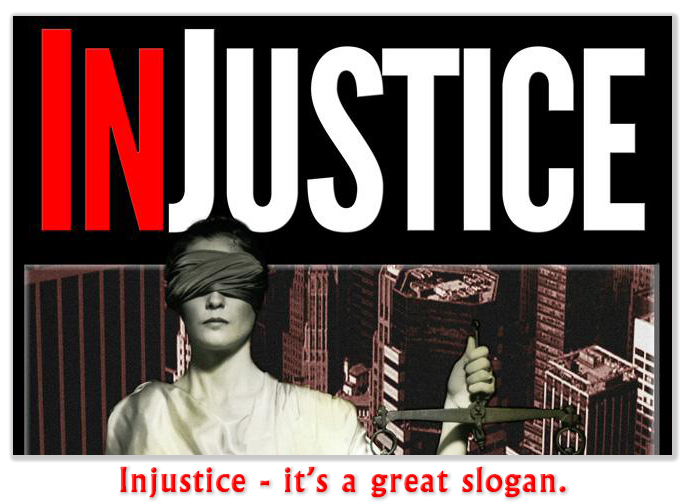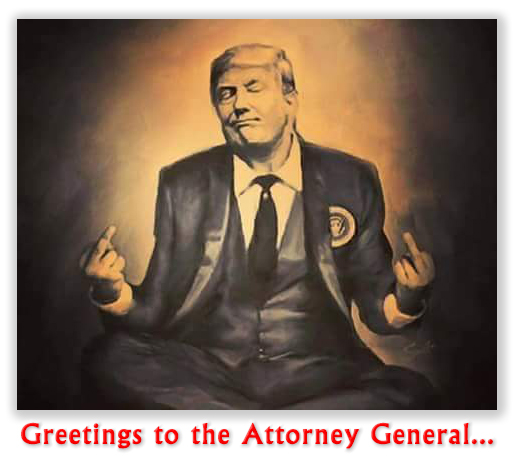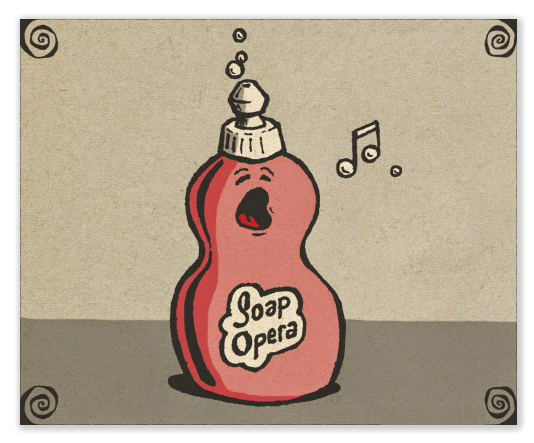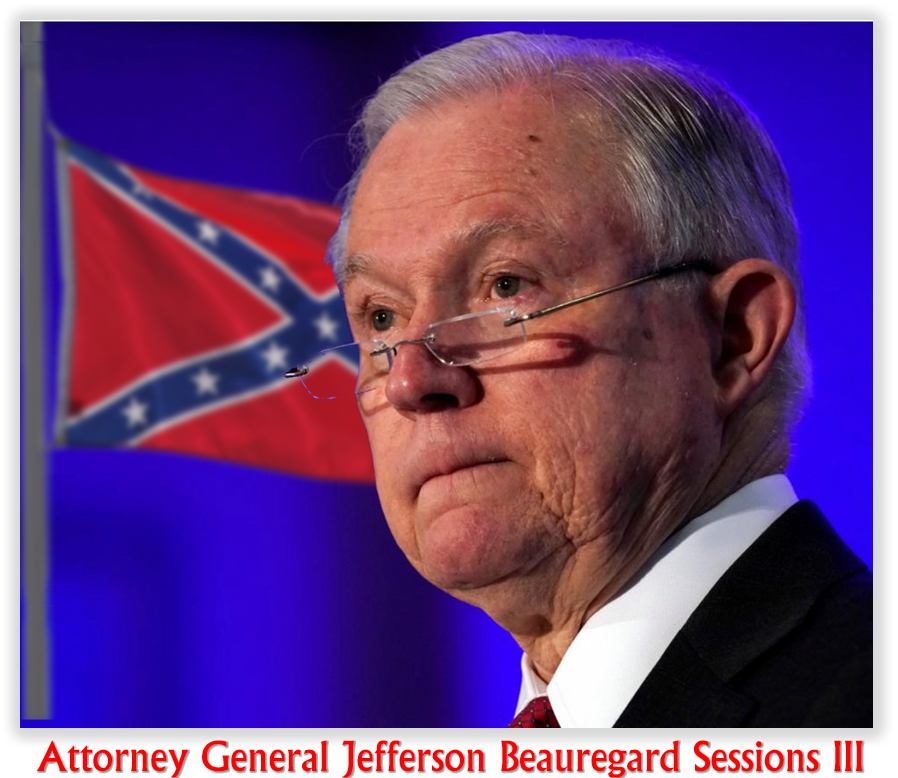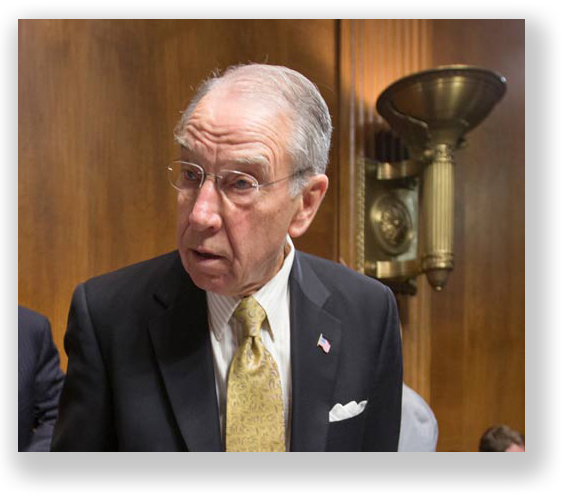We post news and comment on federal criminal justice issues, focused primarily on trial and post-conviction matters, legislative initiatives, and sentencing issues.

RUMOR FLOATED THAT TRUMP WILL APPOINT HIS OWN NON-DOJ PARDON ATTORNEY
The Washington Examiner reported last week that “worried clemency advocates are urging President Trump to select his own pardon attorney as the Justice Department reviews a stack of resumes collected on short notice” to fill its own Pardon Attorney slot.
 There hasn’t been a politically appointed Pardon Attorney in over 40 years, but advocates say it could enhance the position’s stature and ensuring that Trump’s interest in giving second chances extends beyond isolated cases. “I think it makes a lot of sense to have the pardon attorney job be a political one,” said Margaret Love, U.S. pardon attorney from 1990 to 1997.
There hasn’t been a politically appointed Pardon Attorney in over 40 years, but advocates say it could enhance the position’s stature and ensuring that Trump’s interest in giving second chances extends beyond isolated cases. “I think it makes a lot of sense to have the pardon attorney job be a political one,” said Margaret Love, U.S. pardon attorney from 1990 to 1997.
The job posting was open for just a month, closing May 10, suggesting that DOJ may already have a candidate in mind, probably another career prosecutor. “I wonder if they are going to make Trump aware of [the search]. Shouldn’t the president have some say over who his pardon attorney is?” said Sam Morison, who worked for 13 years as a staff attorney in the DOJ’s Office of the Pardon Attorney. “If they are just going to the U.S. attorneys’ offices, they are going to get someone who’s a company man, and that’s the idea,” he said.
Rosalind Sargent-Burns, a long-time Office of the Pardon Attorney staffer, was named acting Pardon Attorney on May 28. She has never been a line prosecutor, to her credit, and has held various positions in the OPA over the past decade, including Designated Agency Ethics Officer, Team Lead, Senior Attorney Advisor over the pardon portfolio, Acting Deputy Pardon Attorney, and Deputy Pardon Attorney.
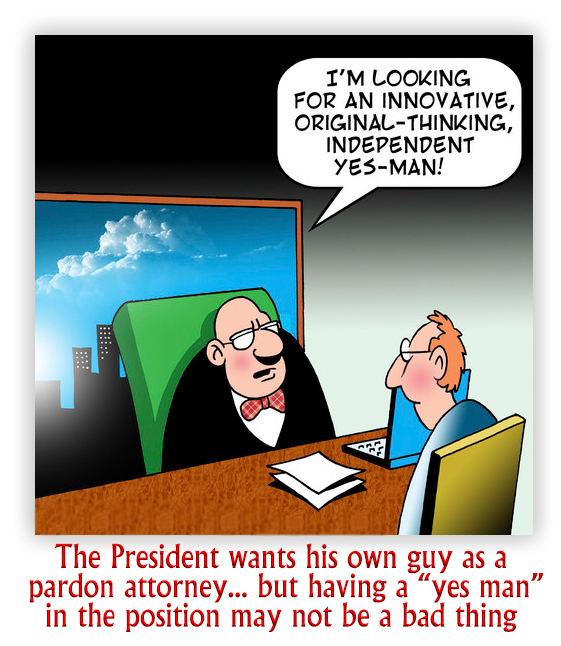 Morison wants Trump to pick his own pardon attorney and move the office into the White House, citing institutional weight against clemency in cases DOJ itself prosecuted. He is hopeful based on President Trump’s public remarks, including that there are “a lot of people” in prison for “no reason.” “Trump gets a lot of criticism, but I think it’s refreshing for him to admit something everyone knows to be truth: The Justice Department is not perfect, and prosecutions are not perfect. Most presidents aren’t actually willing to acknowledge that,” Morison said. “I think Trump does not trust DOJ, and in this particular instance he’s probably correct.”
Morison wants Trump to pick his own pardon attorney and move the office into the White House, citing institutional weight against clemency in cases DOJ itself prosecuted. He is hopeful based on President Trump’s public remarks, including that there are “a lot of people” in prison for “no reason.” “Trump gets a lot of criticism, but I think it’s refreshing for him to admit something everyone knows to be truth: The Justice Department is not perfect, and prosecutions are not perfect. Most presidents aren’t actually willing to acknowledge that,” Morison said. “I think Trump does not trust DOJ, and in this particular instance he’s probably correct.”
Heritage Foundation scholar Paul Larkin, who wants Trump to create a White House Office of Executive Clemency, participated in a private group discussion on clemency reform two months ago. CAN-DO founder Amy Povah also wants the pardon attorney separated from DOJ. “We are relying on President Trump to finally be the hero we’ve been waiting for because he is an outsider who doesn’t worry about shaking up the status quo,” she said.
Trump has now fallen behind President Obama on clemency, having granted only 12 people pardons or commutations, nearly all at the urging of politicians or celebrities. At this point in his presidency, Obama had granted clemency to 17 people.
Washington Examiner, Trump urged to pick his own pardon attorney (June 6)
– Thomas L. Root




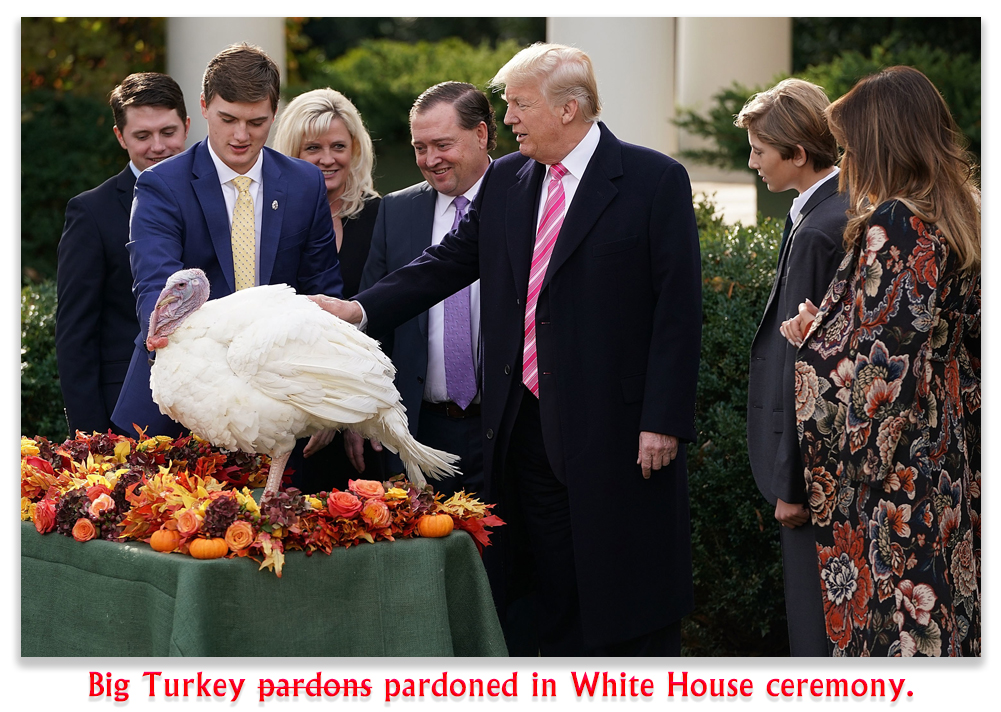


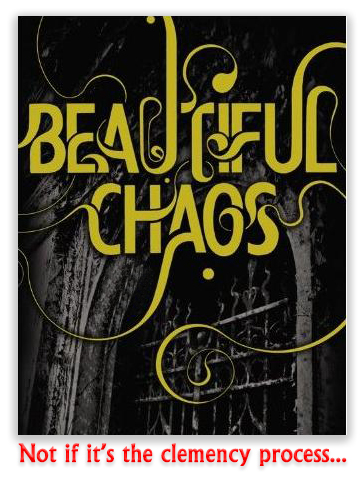




 Berman wrote, “It is now been nearly a month since Prez Donald Trump commuted the life sentence of Alice Johnson at the behest of Kim Kardashian West. Immediately thereafter, there were reports of “a growing list of potential pardons or commutations under consideration by President Donald Trump” and Prez Trump himself said: “We have 3,000 names. We’re looking at them. Of the 3,000 names, many of those names have been treated unfairly.” A week later it was reported Prez Trump will be “pardoning a lot of people — pardons that even Obama wouldn’t do” and reported that Mrs. West had “assembled a large legal team and was pursuing clemency for several other nonviolent offenders.”
Berman wrote, “It is now been nearly a month since Prez Donald Trump commuted the life sentence of Alice Johnson at the behest of Kim Kardashian West. Immediately thereafter, there were reports of “a growing list of potential pardons or commutations under consideration by President Donald Trump” and Prez Trump himself said: “We have 3,000 names. We’re looking at them. Of the 3,000 names, many of those names have been treated unfairly.” A week later it was reported Prez Trump will be “pardoning a lot of people — pardons that even Obama wouldn’t do” and reported that Mrs. West had “assembled a large legal team and was pursuing clemency for several other nonviolent offenders.” 



